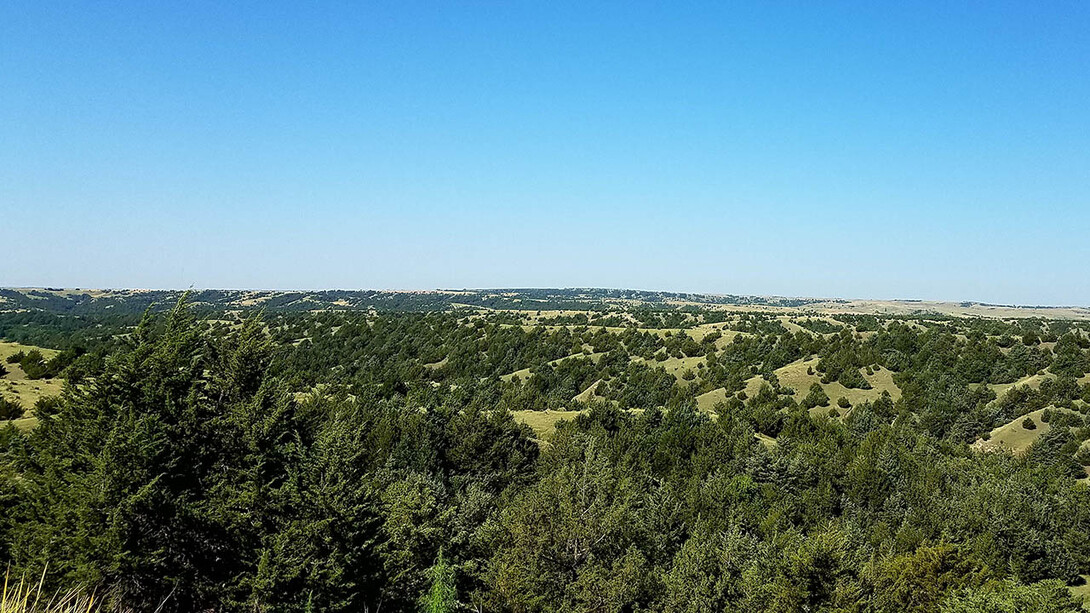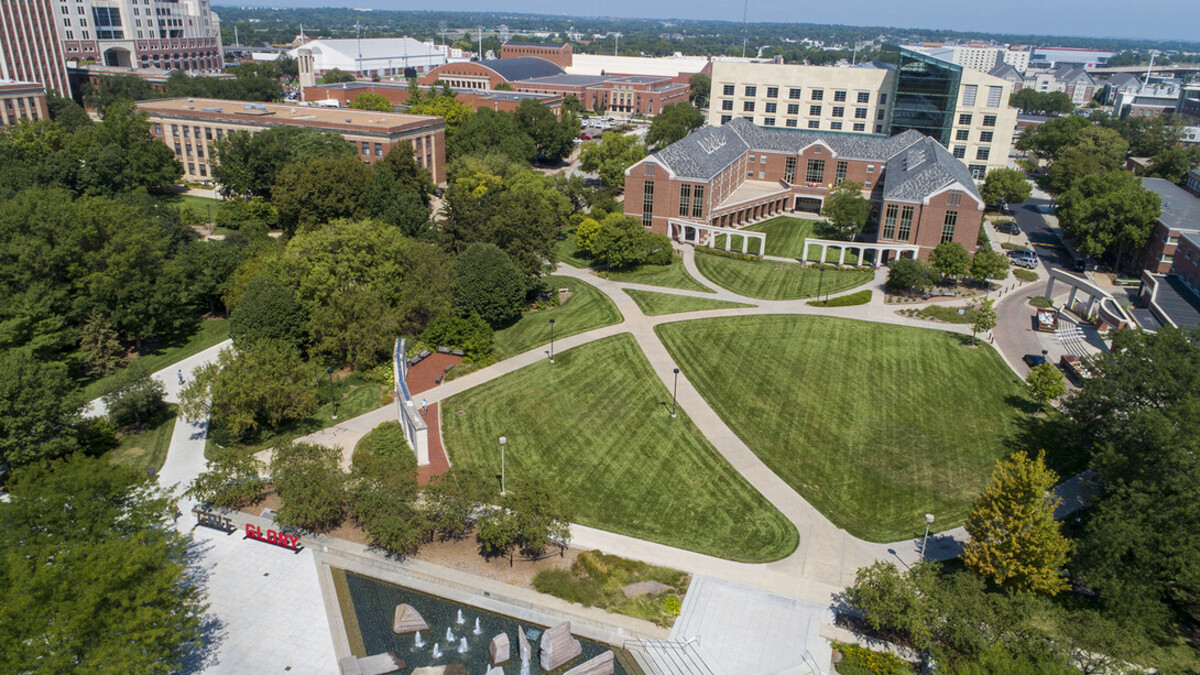
A University of Nebraska–Lincoln project to strengthen the fight against eastern red cedar invasions received a $77,000 grant from the Nebraska Environmental Trust.
Dirac Twidwell, associate professor of agronomy and horticulture, leads the project.
Recent partnerships among scientists, agencies and large landowner coalitions have spurred a growing interest for a statewide plan to the woody encroachment problem. These groups have called for coordination of a statewide planning initiative that strategically protects the last remaining large intact grassland regions in the central Great Plains and halts the continued expansion of woody encroachment at scales necessary for sustaining grassland wildlife and rancher livelihoods.
The grant will be used to hire a coordinator to lead the development of a statewide plan that builds resilience in grassland landscapes and improves the performance of conservation expenditures targeting eastern red cedar invasions. The coordinator will build on the combined efforts of the Nebraska Game and Parks Commission and the university, which have resulted in increased awareness of the scope of this problem, its implications for the profitability, productivity and diversity of working lands in the state, and new ways to strategically target and manage eastern red cedar invasions.
This is the first year of the award, with a potential for second- and third-year funding of $79,310 and $81,690, respectively. The project is one of 118 receiving $20 million in grant awards from the NET this year. Of these, 73 were new applications and 45 are carry-over projects.
The Nebraska Legislature created the NET in 1992. Using revenue from the Nebraska Lottery, the trust has provided more than $328 million in grants to more than 2,300 projects across the state. Anyone — citizens, organizations, communities, farmers and businesses — can apply for funding to protect habitat, improve water quality and establish recycling programs in Nebraska. The NET works to preserve, protect and restore the state’s natural resources for future generations.







